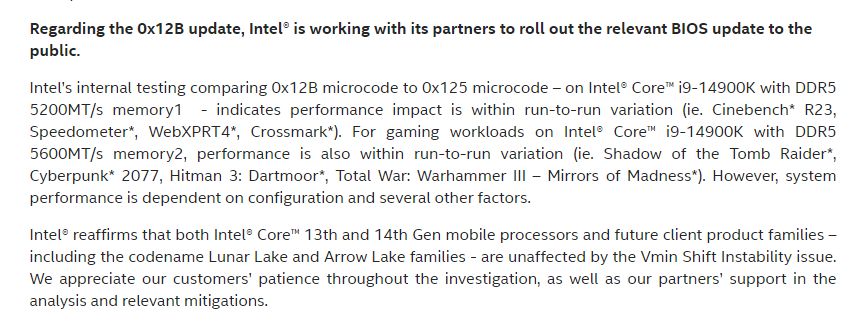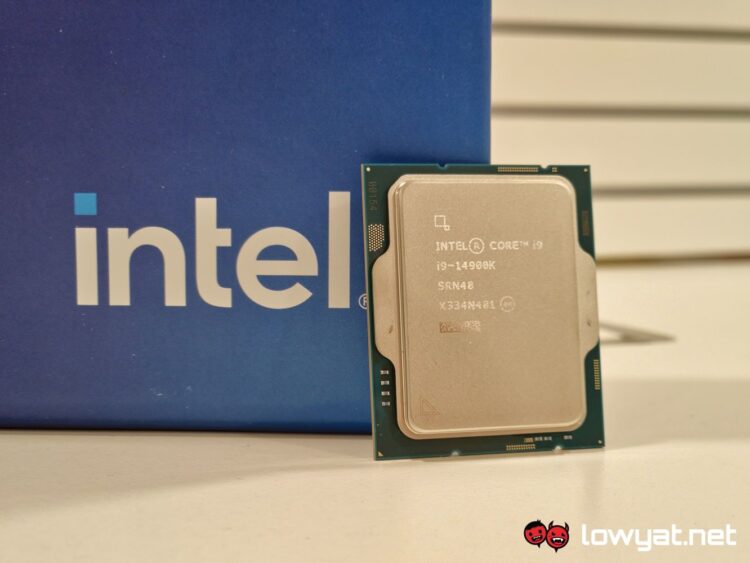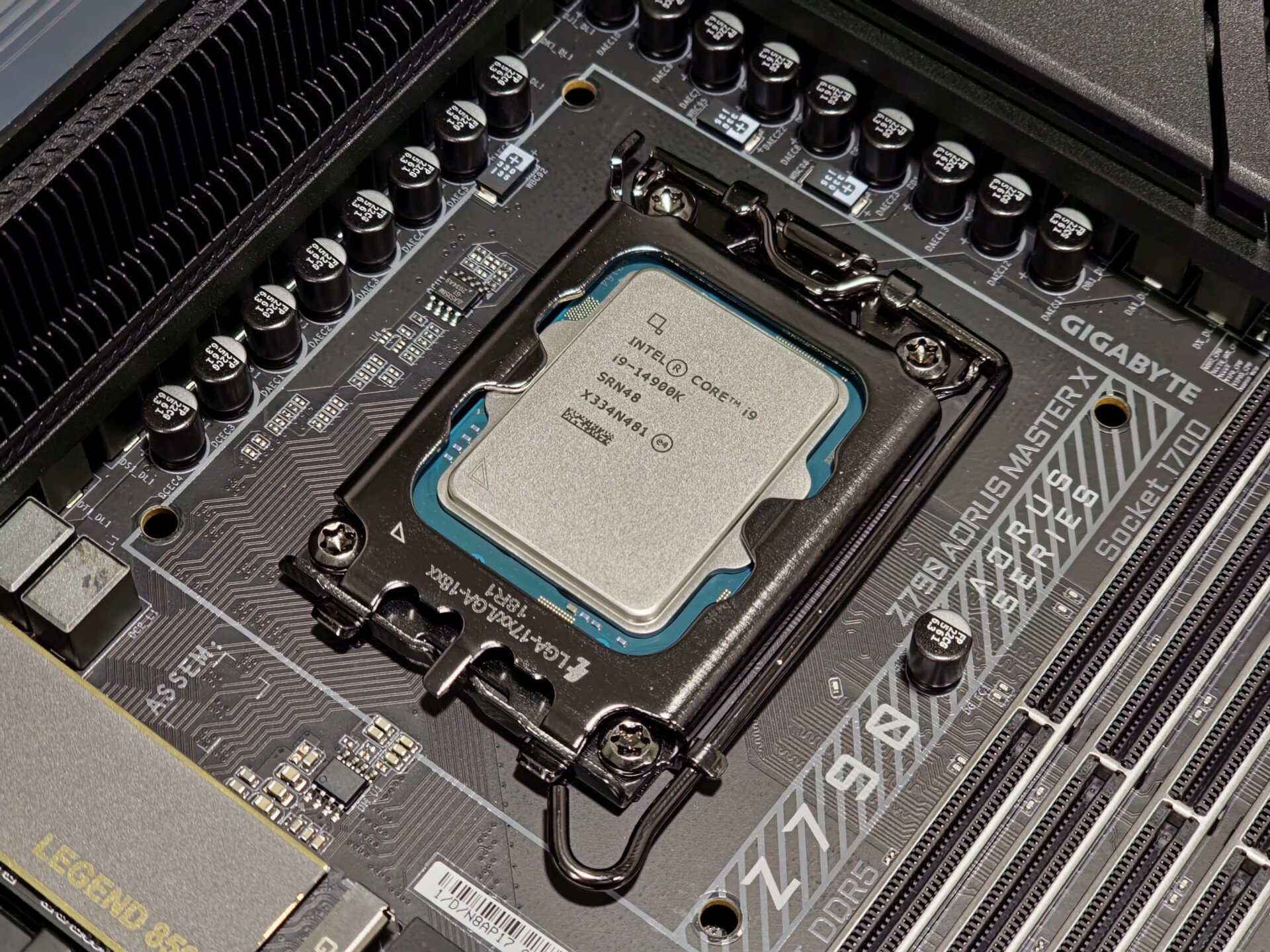Back in July, Intel rolled out a microcode that it claimed would patch up and fix the instability issues that were causing crashes and, in some cases, killing their Raptor Lake-S desktop CPUs, specifically the high-end 13th and 14th Gen Core i9 processors. Well, the chipmaker has come up to the podium to announce that it has found the “real” issue that was plaguing the CPUs.
Intel says that it is releasing a proper root cause fix for affected 13th and 14th Gen CPUs, with a new 0x12B microcode update. According to the official blog post, the patch will address “elevated voltage requests by the processor during idle and/or light activity periods”, which it has narrowed down to being caused by a particular “clock tree circuit within the IA core”.

To put that in layman terms, Intel found the “real” root cause to stem from a specific circuit within the bulk of its 13th and 14th Gen Core i9 series processors, which plays house to all their P-Cores and E-Cores.
That being said, the blog post also included a list of issues that could cause the issue of the Vmin shift, as it’s known. That list still includes motherboard vendors exceeding Intel’s power recommendation, while another points to a theory it posited before – and eTVB microde algorithm that allowed both Raptor Lake-S and Raptor Lake-S Refresh high-end CPUs to operate at higher performance states “even at high temperatures”.
Intel says it’s “working with its partners to roll out the relevant BIOS update to the public”, so we can expect motherboard vendors to release the updates for the relevant Z790 motherboards soon.
Follow us on Instagram, Facebook, Twitter or Telegram for more updates and breaking news.




